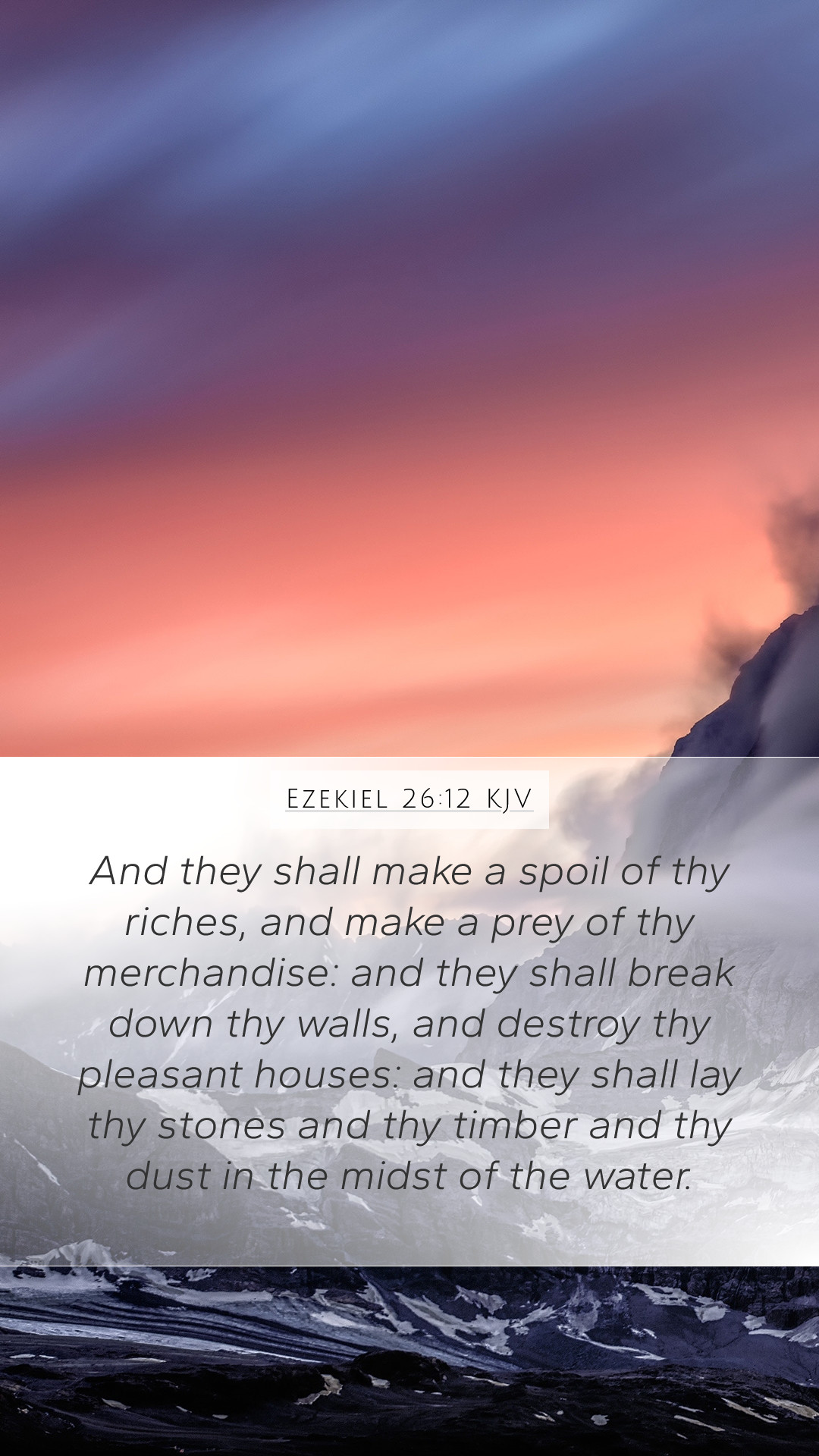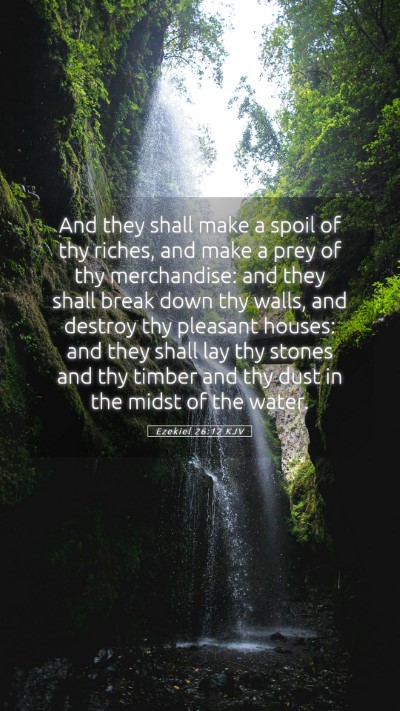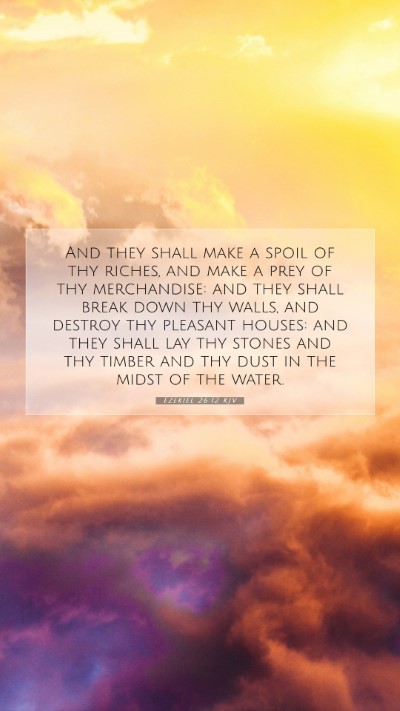Bible Verse Commentary: Ezekiel 26:12
Verse: Ezekiel 26:12 - "And they shall make a spoil of thy riches, and make a prey of thy merchandise: and they shall break down thy walls, and destroy thy pleasant houses: and they shall lay thy stones and thy timber and thy dust in the midst of the water."
General Overview
Ezekiel 26:12 is a prophetic declaration about the judgment that would befall the city of Tyre, which was known for its wealth, commerce, and fortified structures. This verse signifies the total devastation that is prophesied against Tyre, illustrating both economic and physical destruction.
Commentary Insights
-
Matthew Henry’s Commentary:
Henry highlights the financial repercussions that would arise from Tyre’s downfall, noting that the wealth amassed through trade would be taken away. He emphasizes how Tyre's pride and reliance on its own strength would lead to its ruin, serving as a warning against hubris.
-
Albert Barnes’ Notes:
Barnes elaborates on the physical destruction of Tyre, focusing on the dismantling of its walls and the plundering of its goods. He interprets this as a fulfillment of God's judgment against the city due to its idolatry and arrogance, underscoring the sovereign power of God in administering justice.
-
Adam Clarke’s Commentary:
Clarke draws attention to the manner of the destruction, stating that it would be systematic and humiliating. He suggests that the act of casting down the stones, timber, and dust into the waters symbolically represents a total erasure of Tyre's glory and legacy.
Key Themes
- Divine Judgment: This verse demonstrates that God will execute His judgment not just spiritually, but also materially, impacting nations and cities through destruction.
- Wealth and Security: Tyre's reliance on its riches and fortified buildings ultimately leads to its downfall, illustrating the transient nature of earthly wealth and fortifications.
- Historical Context: Tyre was a significant city during Ezekiel's time, known for its commercial prowess. The prophecy serves as historical commentary on the consequences of pride and disobedience against God.
Application and Reflection
For modern readers, Ezekiel 26:12 invites reflection on the nature of wealth and security in our lives. It poses critical questions about what we place our trust in—are we relying on our material possessions or acknowledged the sovereignty of God over all circumstances?
Connecting to Other Scripture
This verse can be connected to the following cross-references:
- Isaiah 23:1-18: A prophecy against Tyre, discussing its demise and the fate of its merchants.
- Jeremiah 47:4: A prophecy of judgment upon the Philistines, showing the broader context of judgment against surrounding nations.
- Revelation 18:17-19: The fall of Babylon, parallelingTyre’s destruction as a metaphor for worldly riches and idolatry.
Concluding Thoughts
This verse encapsulates the themes of divine judgment and the ephemeral nature of worldly possessions. It serves as a profound reminder of the need for humility and reliance on God rather than the uncertainties of material wealth. For those engaging in Bible study, this passage provides valuable insight into the principles of Biblical exegesis and offers deep Bible verse understanding.
Further Study Resources
- Bible Study Guides: Explore various guides that delve into the historical and theological significance of prophetic literature.
- Online Bible Study: Join online groups discussing the implications and contemporary applications of Old Testament prophecies.
- Bible Study Tools: Utilize study tools for in-depth scripture analysis, such as lexicons and commentaries.


